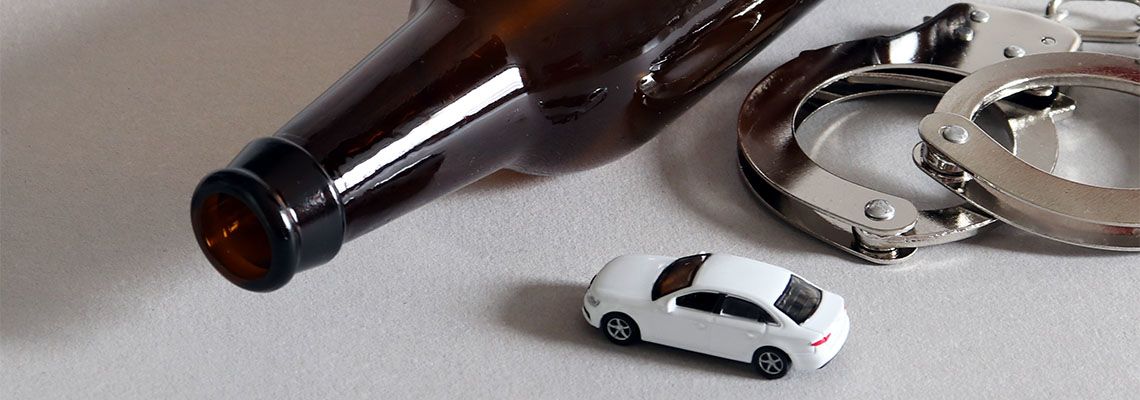
According to statistics from the Colorado Division of Criminal Justice, there were 16,324 total DUI-related arrests in 2020. Of these, there were 3,768 positive test results for cannabis among individuals charged with DUI offenses. In the state of Colorado, it is illegal to drive a motor vehicle while under the influence of alcohol or drugs.
On suspicion of driving impaired, a law enforcement officer may ask you to take some voluntary field sobriety tests. However, understanding your rights with field sobriety testing is crucial to protect your driving privileges and ensure that you don't end up in the worst possible situation.
At The Leier Law Office LLC, we're committed to offering comprehensive legal guidance and skilled representation to individuals facing drugged driving charges. Our aggressive Colorado criminal defense attorney can evaluate every aspect of your case, enlighten you about your rights with field sobriety testing, and outline a solid defense to fight your charges. We proudly serve clients across Fort Collins, Loveland, Evans, Windsor, and Greeley, Colorado.
Marijuana Laws in Colorado
Both medical and recreational marijuana are legal in Colorado. However, there are certain restrictions regarding the use and possession of marijuana in the state. According to Colorado laws, Colorado residents who are at least 21 years old are allowed to purchase marijuana from a licensed retailer and possess up to one (1) ounce of marijuana at a time.
In addition, non-residents may be eligible to purchase up to one-quarter (¼) ounce at a time from a licensed retailer. However, you're prohibited from driving while under the influence of marijuana. If you're suspected of impaired driving, the police officer can ask you to take some DUI tests, including field sobriety tests and chemical tests.
Field Sobriety Tests for Marijuana
Field sobriety tests comprise three standardized tests that are often used by law enforcement to determine if a driver suspected of driving impaired is intoxicated, drugged, or sober. If the field sobriety tests are determined to be positive, the accused driver may be considered to be driving while impaired.
What Qualifies As "Impaired?"
Furthermore, a person is said to be driving impaired if their ability to operate a motor vehicle safely has been affected by alcohol or drugs. Just like with alcohol (BAC of 0.08% or more), there is a recognized impairment level for marijuana in the state of Colorado.
According to Colorado DUI laws, a driver may be arrested and charged with drugged driving if:
They are impaired to the slightest degree while driving.
They have 5 nanograms or more of delta 9-tetrahydrocannabinol (THC) per milliliter in their blood.
Types of Field Sobriety Tests
Law enforcement will typically use the following field sobriety tests after a traffic stop.
The One-Leg Stand test
The one-leg stand test requires you to stand on one foot at a height of about six inches above the ground. While your leg is raised, the law enforcement officer will ask you to count numbers from 1,001 for about 30 seconds. The police officer will observe if you can balance on one foot while focusing on your counting to determine whether you're impaired.
The Horizontal Gaze Nystagmus Test
In the horizontal gaze nystagmus test, the law enforcement officer will hold an item in front of your nose and request that you follow the object with your eyes from side to side while your head remains still. Excessive jerking or bouncing eye movements may indicate impairment.
The Walk-and-Turn Test
In the walk-and-turn test, the law enforcement officer will ask you to take nine steps in a straight line in a heel-to-toe manner. Once you reach the end of the line, you will be asked to take a series of small steps around your lead foot and return to your starting position in the same heel-to-toe style.
Are Field Sobriety Tests Reliable?
Field sobriety tests are useful additions when evaluating a driver for alcohol or drug impairment; however, these tests are often subjective and not always accurate indicators of impaired driving. Keep in mind field sobriety tests are voluntary in Colorado, and there are no penalties or consequences for refusing to take the test.
Possible Penalties
Some possible penalties and consequences of driving while under the influence of marijuana in Colorado include any of the following:
jail time or prison sentence
massive fines and court fees
probation
community service
drug/alcohol classes
monitored sobriety testing
an Ignition Interlock Device (IID)
court-imposed license revocation
a criminal record/history
increased auto insurance rates
ineligibility to obtain certain financial loans
damage to personal and professional relationships
loss of scholarships or university acceptance
increased difficulty in getting accommodation, employment, and public assistance.
A highly-skilled Colorado DUI/DWAI defense attorney can determine the best defenses to fight your charges and help you avoid the far-reaching punishments of a criminal conviction.
Understand Your Rights and Protect Your Future
A conviction for marijuana DUI can be devastating and might jeopardize your career, quality of life, freedom, and driving privileges. At The Leier Law Office LLC, we have the diligence and skill to defend and represent clients in their drugged driving cases. As your lawyer, we can review your case details, dispute the allegations against you with overwhelming evidence, and help keep your record as clean as possible.
Contact us at The Leier Law Office LLC today to schedule a simple case assessment with a knowledgeable criminal defense lawyer. Our dependable attorney can help you navigate the Colorado criminal justice system and represent you aggressively at every phase of the legal process. We're proud to serve clients across Fort Collins, Loveland, Evans, Windsor, and Greeley, Colorado.



